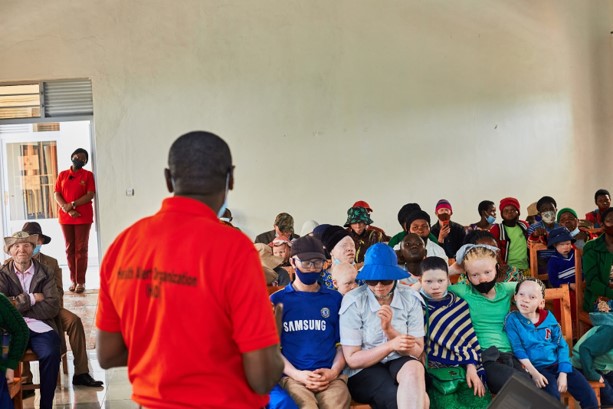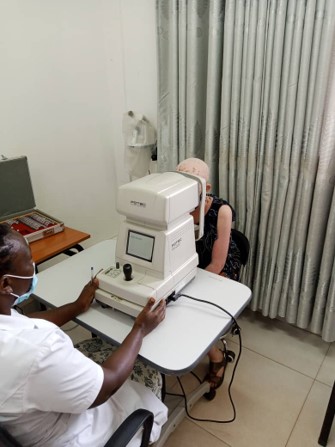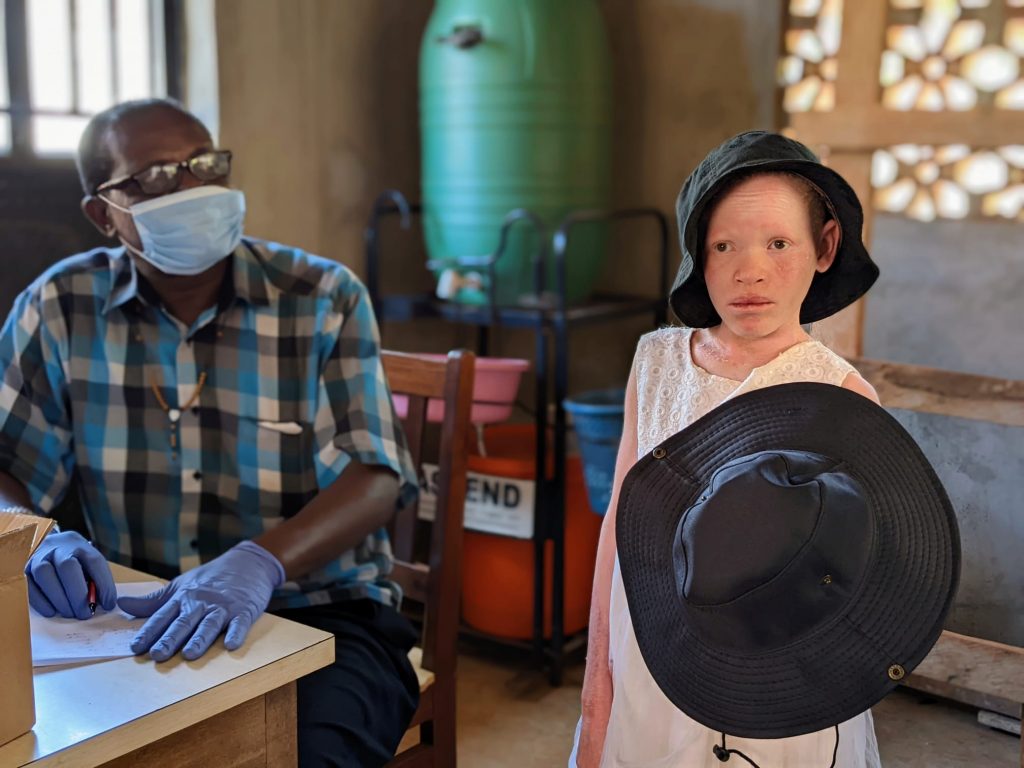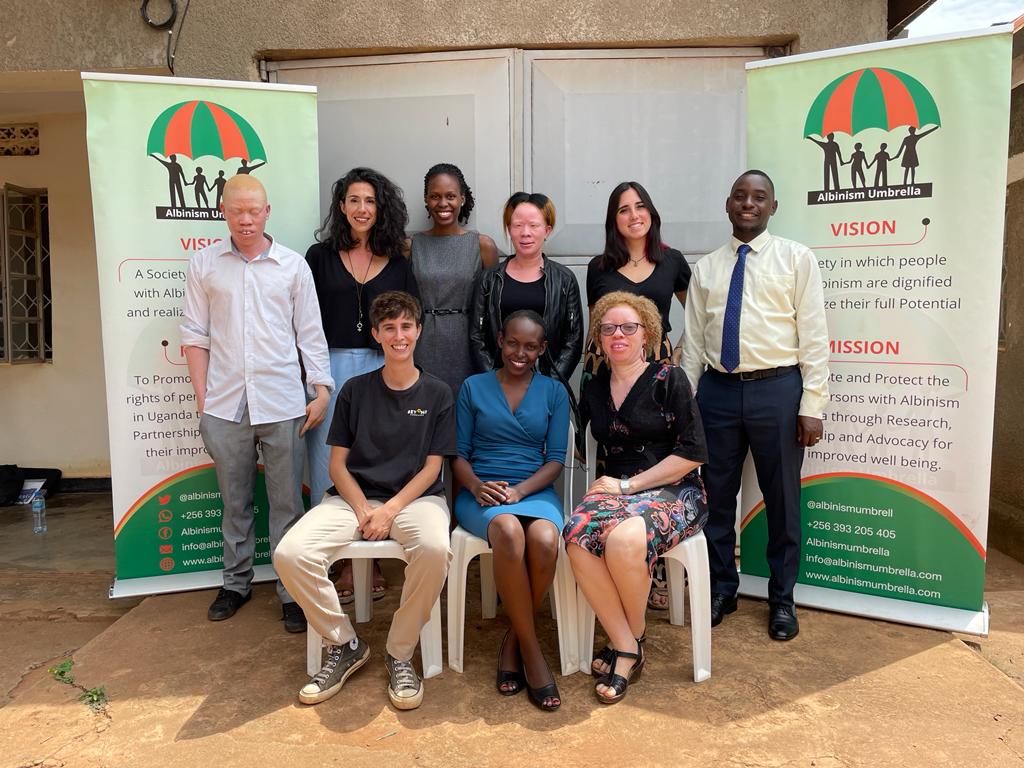Beyond Suncare expands its work with the goal of serving more than 1000 people with albinism in Rwanda and Uganda by 2022.
For a decade we have been working in African countries such as Malawi and Tanzania aiming that more people with albinism have access to health care, are protected against skin cancer, discrimination and ignorance surrounding their condition.
We are very happy to tell you about the progress of the project we are carrying out in Rwanda and a new one that we are about to launch in Uganda, two countries where we work with local entities to reach many more people with albinism.
RWANDA
In Rwanda, we serve 300 people with albinism, more than 35% of whom are children.
In Rwanda, according to Africa Albinism Network, people with albinism continue to be discriminated against because of their condition, especially children from rural communities who see how the lack of knowledge about albinism causes stigmatima, hindering their education and integration in schools.
Beyond Suncare has been working in the country for more than a year with the local NGO Health Alert Organization (HAO), where volunteer health workers provide support to vulnerable groups. We support their work in the country’s capital, Kigali, but also in 4 other districts: Muzanze, Rutsiro and Kirehe and Buyesera.
Together with HAO, we conduct education and awareness workshops on the causes of albinism, preventive measures for the onset of skin lesions and how to prevent skin cancer, both for people with albinism and their families. We also train local health professionals to better understand the genetic condition of albinism and provide better care for people with albinism.
Comprehensive care through dermatological, ophthalmological and psycho-social support.
To reach more remote rural areas, we run mobile clinics that integrate dermatological, ophthalmological and psychosocial support services. We treat people in need with cryotherapy (treatment of precancerous lesions) and distribute sunscreen creams specially designed for their skin and needs.
Patients identified with skin cancer or those whose mental health needs to be addressed in more depth are sent to referral centers in Kigali.
Last March, a Beyond team was accompanying our partner Health Alert Organization in the implementation of their mobile clinics and in the design of an expansion of the program to two more districts in the second half of this year. Thus we expect that by the end of this year, 500 people with albinism in 7 districts of Rwanda will be served by the program.
UGANDA
Expansion of mobile health clinics to 9 districts in southeastern Uganda
In Uganda, people with albinism also suffer stigmatization, and some of the most serious social prejudices related to albinism affect women and minors.
Beyond Suncare works in the country with the Source of the Nile Union of Persons with Albinism (SNUPA), a local organization based in Jinja, a town in the southeastern region of the country on the shores of Lake Victoria. The organization is headed by Peter Ogik, a young man with albinism who has been working for years with the aim of improving the lives of people like him who suffer from ignorance of their condition.
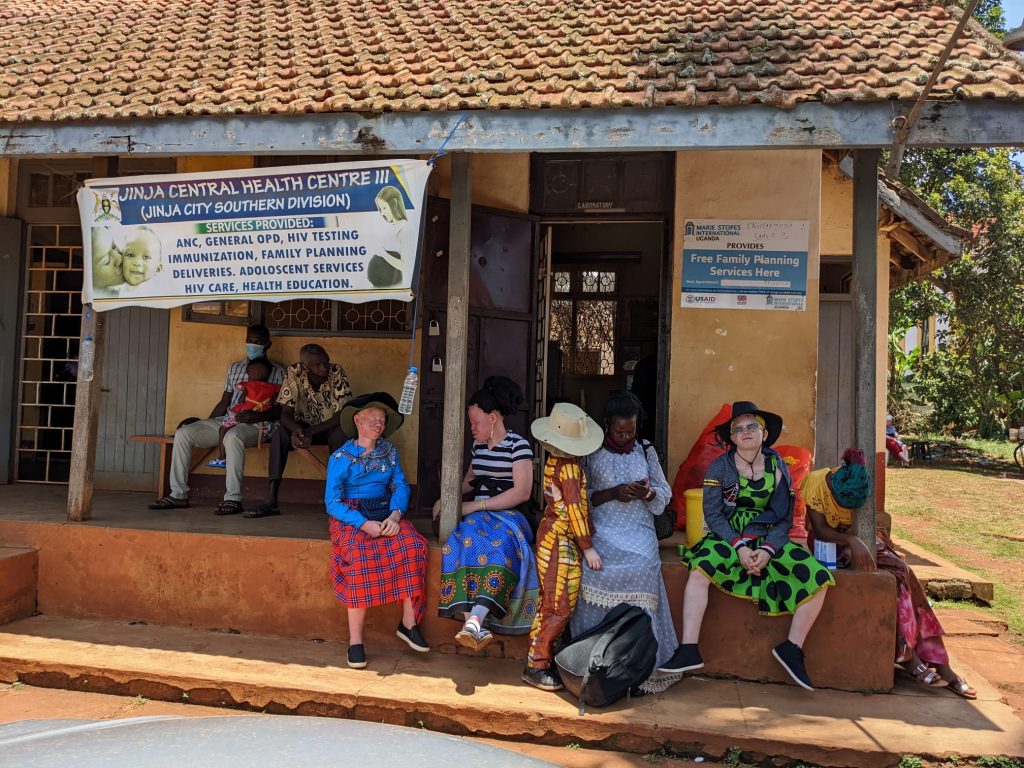
The project, which will start in July this year, has as its main objective to expand its mobile socio-health clinics to 9 districts of the country to serve more than 600 people with albinism with training and awareness, dermatological consultations and treatment of precancerous lesions and distribution of personalized sun creams, wide-brimmed hats and glasses.
Assessment of the feasibility for the establishment of a local laboratory for the manufacture of tailored sunscreens
In March, a Beyond Suncare delegation joined the team of the local NGO Albinism Umbrella in the framework of a mission to study the feasibility of establishing a local production unit to locally manufacture the tailored made sunscreen UMOZI MAX SPF 50+. Over the course of a week, we met with various organizations and institutions, including the Ministry of Health, the National Union of Persons with Disabilities in Uganda and the Office of the United Nations High Commissioner for Human Rights.


